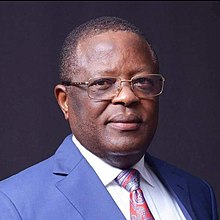The Nigeria Customs Service (NC) has collaborated with the Directorate General Taxation and Customs Union (DG TAXUD) of the European Union (EU) for efficient export monitoring and trade facilitation.
During a meeting that took place at the Corporate Headquarters of NCS on February 27, 2024, the Comptroller General of Customs, Bashir Adewale Adeniyi, announced that the service is collaborating with DG TAXUD for efficiency in Export Monitoring and documentation.
With the Nigeria Customs Service as the competent authority for rules of origin, the Comptroller General assured that the Service will do all it can to facilitate the process, adding that peace will prevail if trade is permitted to flourish.
Notwithstanding, the CG acknowledged the initiative as a welcome idea working towards economic union by bringing the two economic blocks together. He said the initiative of the Registered Exporters is a welcome development.
CGC requested a framework between Customs and DG TAXUD that can be used to verify and validate export commodities. He stated the service is interested in a digital platform that will enhance the validation of documents.
According to the Comptroller General, “As part of our outreach program, we are also working with other agencies of the Nigerian government so that we maximize these opportunities. In the past, we’ve had goods from Nigeria returned because of quality, storage, and all of that”.
He said, “We’ve moved to establish a ‘one-stop-shop’ export seat for export documentation so that it will help us reduce the time taken for Nigerian exporters to get their goods out of our port. Earlier this month, we launched the Time Release Studies, which we are targeting towards importing of goods and how much it takes for businessmen to clear their goods in the port”.
Still speaking, he said, “We are also going to launch a similar exercise to have a scientific measure of how long and how much it costs our businessmen to export their products. The most important part is to identify if there are bureaucratic modules, procedures, or laws that are creating delays so that people can get their things off our port with speed”.
The CGC said, “My intention for us is to have a system that is better, faster, and easier for us to confirm your request within a very short period. I want us to talk about exportation like we all talk about importation”.
Also speaking, Gary Wilkinson, who works in the Rules of Origin in the Directorate-General Taxation and Customs Union (DG TAXUD) in the EU, said the tariff discount for exported products is 4 percent, so when Nigerian products are exported, they get a discount.
He emphasized that as part of the Generalized System of Preference (GSP) scheme, they occasionally travel to developing countries to ensure that products sent to the European Union are indeed of Nigerian origin.
He stated that specific rules have been put in place to ascertain the origin of products under the GSP scheme. He said all their trade agreements are based on cooperation between the two Customs departments.




